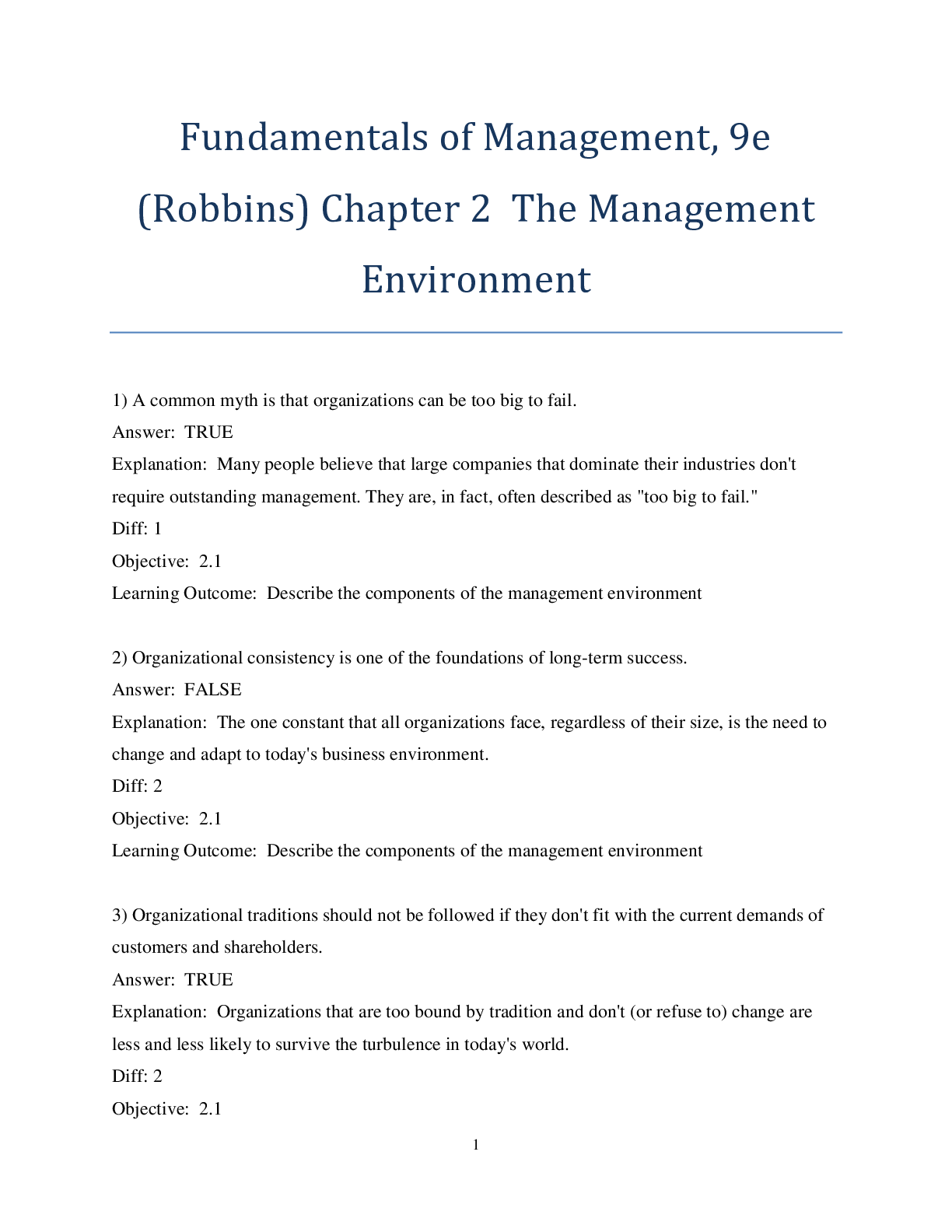Education > QUESTIONS & ANSWERS > Fundamentals of Management, 9e (Robbins) Chapter 1 Managers and Management (All)
Fundamentals of Management, 9e (Robbins) Chapter 1 Managers and Management
Document Content and Description Below
Part of what defines an organization is its purpose. Answer: TRUE Explanation: The goals or purpose of an organization define the organization's reason for existing. Without a common purpose, a gro... up of individuals does not qualify as an organization. Diff: 2 Objective: 1.1 Learning Outcome: Describe the roles of managers and the skills they need to succeed within an organization 2) All organizations have a structure that in some ways serves to define and limit the behavior of members of the organization. Answer: TRUE Explanation: The structure of an organization, whether formal or informal, defines how organization members interact. For example, a school's informal guidelines might determine how teachers fraternize. A school's formal guidelines might set up rules for interaction between students and teachers. Diff: 2 Objective: 1.1 Learning Outcome: Describe the roles of managers and the skills they need to succeed within an organization 3) In order to be considered a manager, an individual must direct or oversee the work of others. Answer: TRUE Explanation: Directing and overseeing work distinguishes managers from nonmanagerial employees. Managers direct and oversee work of others. Nonmanagerial employees have no supervisory responsibilities. Diff: 2 Objective: 1.1 Learning Outcome: Describe the roles of managers and the skills they need to succeed within an organization 4) A manager does not work directly on tasks for the organization. Answer: FALSE Explanation: Managers may work on tasks in addition to their supervisory duties. For example, a manager of a shop that designs clothing may also create designs on his or her own. Diff: 2 Objective: 1.1 Learning Outcome: Describe the roles of managers and the skills they need to succeed within an organization 5) Supervisors and team leaders may both be considered first-line managers. Answer: TRUE Explanation: First-line managers are managers who oversee workers directly and are involved in day-to-day operations. For example, a team manager in an auto assembly plant might oversee and help solve everyday problems that arise on the assembly line. Higher-level managers typically would not spend time helping to solve assembly line problems directly. Diff: 1 Objective: 1.1 Learning Outcome: Describe the roles of managers and the skills they need to succeed within an organization 6) Effectiveness refers to the relationship between inputs and outputs. Answer: FALSE Explanation: Efficiency is concerned with maximizing the output-to-input ratio. Effectiveness, on the other hand, refers not to how well resources are used but to which resources to use, and whether or not those resources help the organization attain its goals. Diff: 2 Objective: 1.2 Learning Outcome: Describe the roles of managers and the skills they need to succeed within an organization 7) A goal of efficiency is to minimize output costs while maximizing input costs. Answer: FALSE Explanation: The goal of efficiency is the opposite—to maximize outputs while minimizing inputs. An efficient operation uses the fewest resources to generate the greatest amount of product. Diff: 2 Objective: 1.2 Learning Outcome: Describe the roles of managers and the skills they need to succeed within an organization 8) Effectiveness refers to the attainment of the organization's goals. Answer: TRUE Explanation: Effectiveness is concerned with "doing the right things"—choosing the tasks that will help the organization achieve its goals. Efficiency, on the other hand, refers to "doing things right," that is, once tasks are chosen they are done with a minimum of waste. Diff: 2 Objective: 1.2 Learning Outcome: Describe the roles of managers and the skills they need to succeed within an organization [Show More]
Last updated: 2 years ago
Preview 1 out of 422 pages
.png)
Buy this document to get the full access instantly
Instant Download Access after purchase
Buy NowInstant download
We Accept:

Reviews( 0 )
$7.50
Can't find what you want? Try our AI powered Search
Document information
Connected school, study & course
About the document
Uploaded On
Jan 15, 2022
Number of pages
422
Written in
Additional information
This document has been written for:
Uploaded
Jan 15, 2022
Downloads
0
Views
50




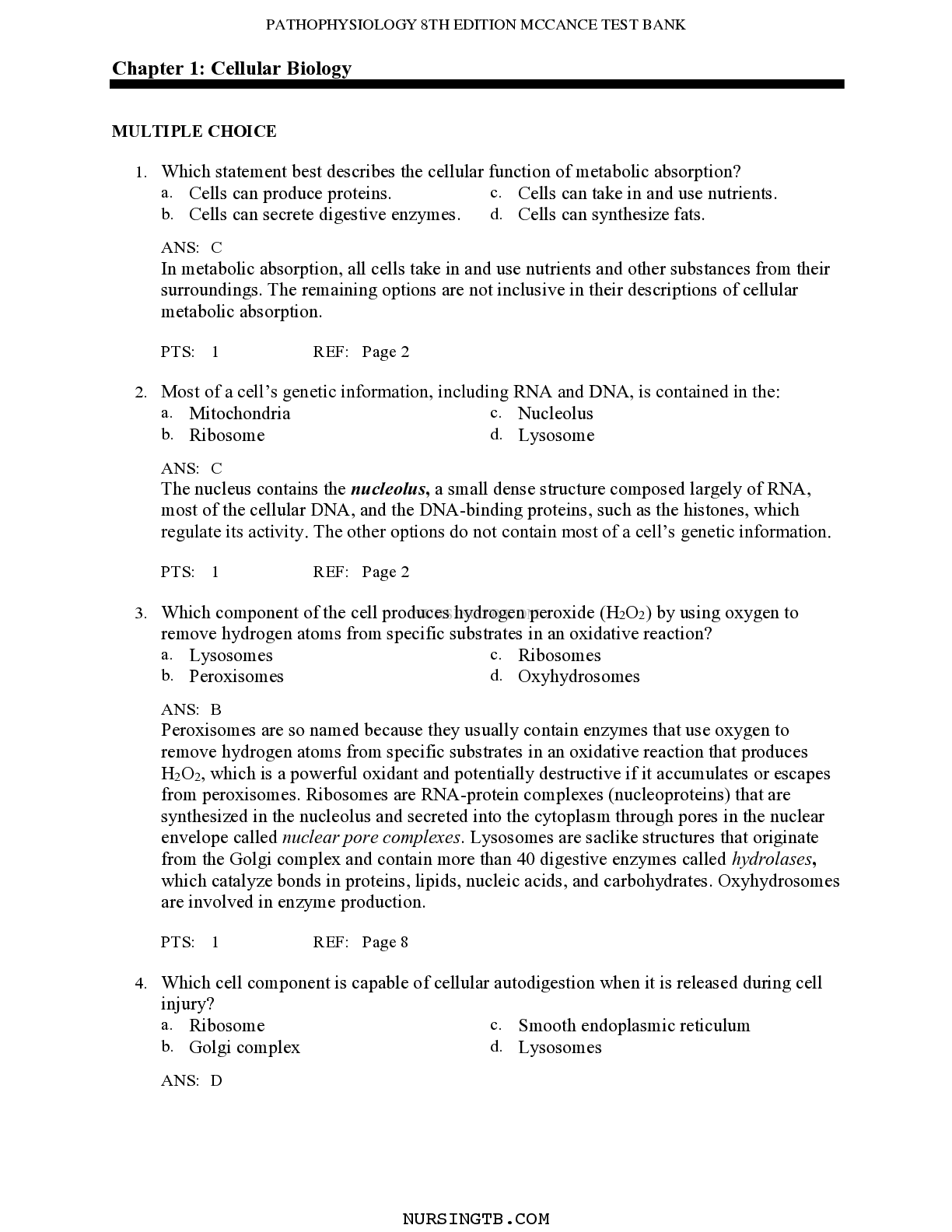
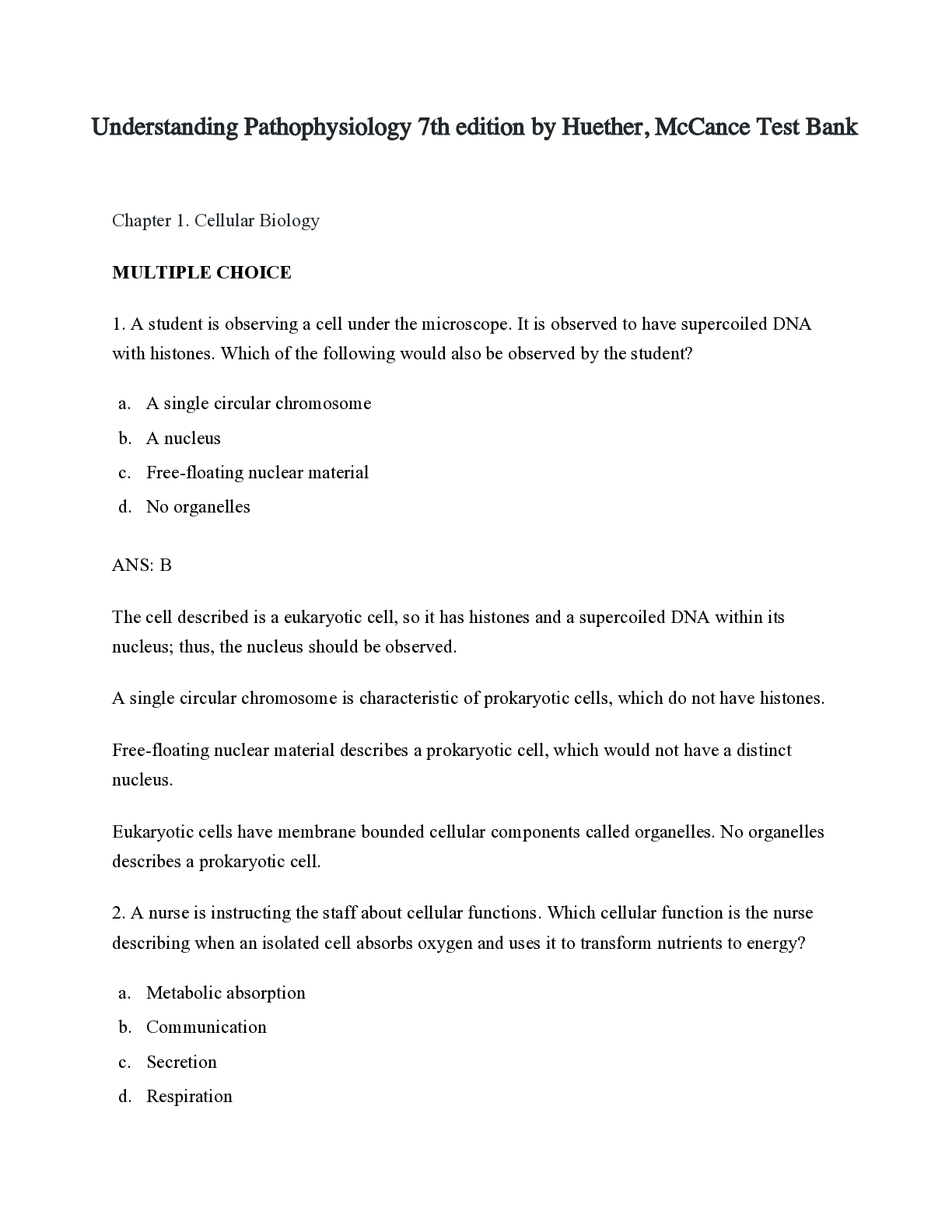
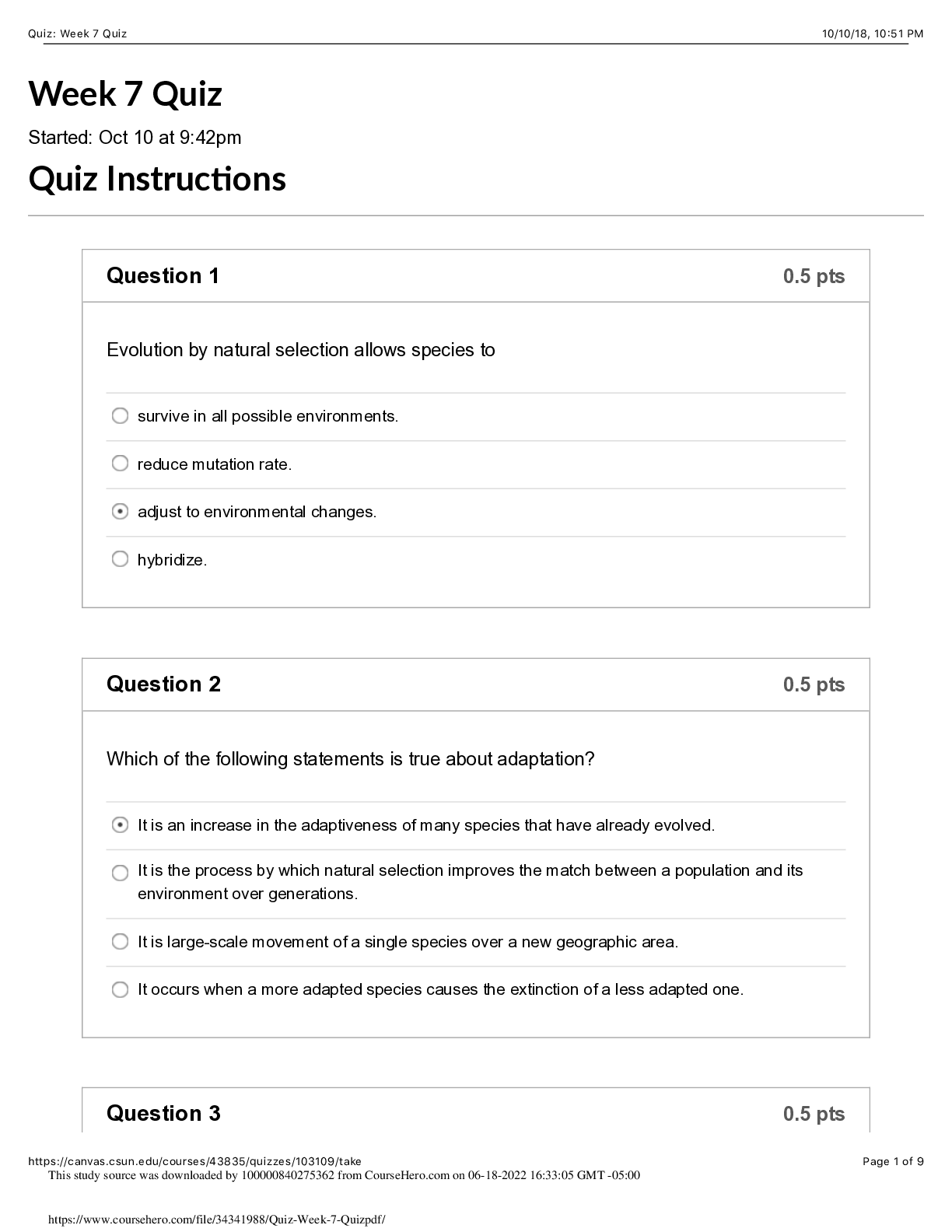
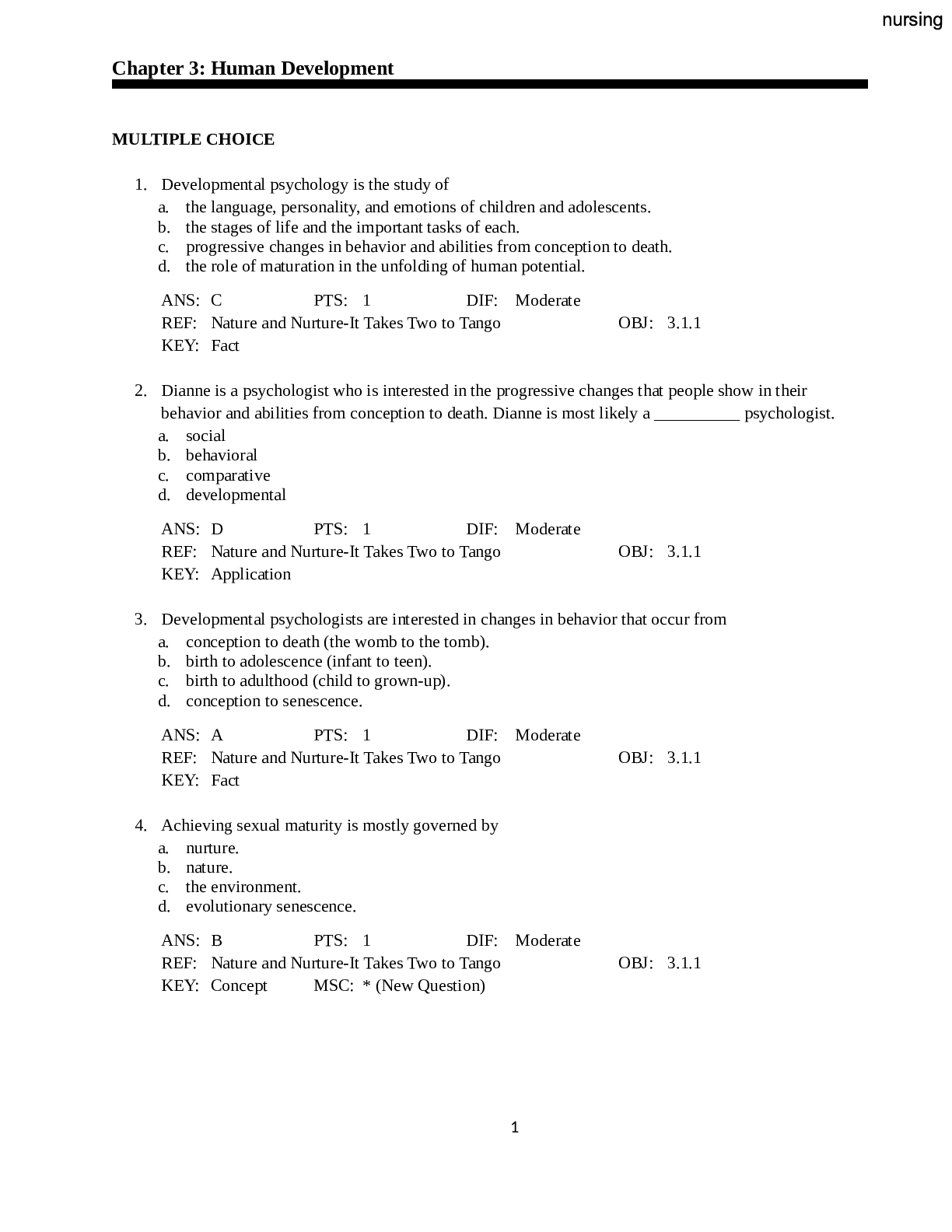

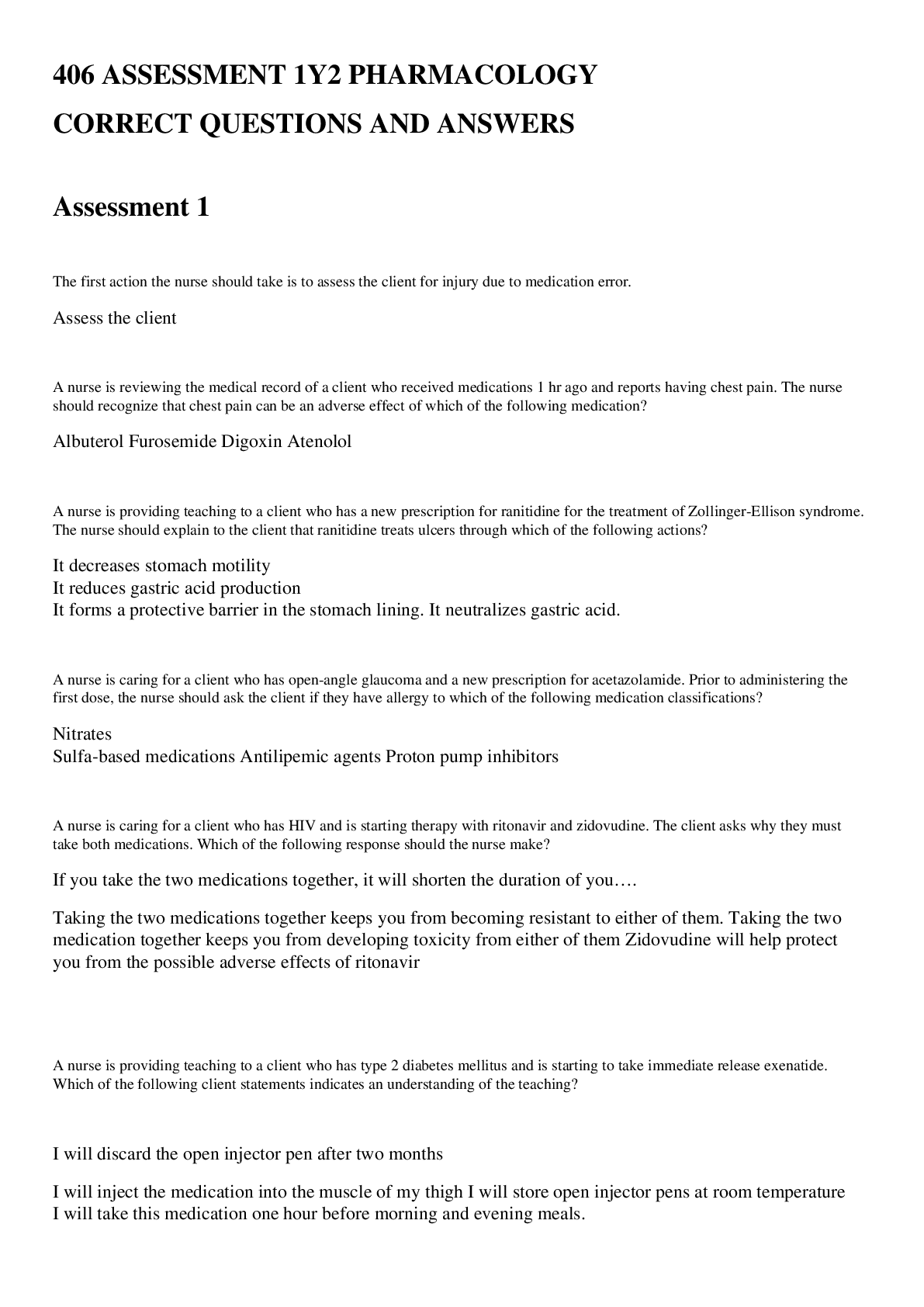
.png)


